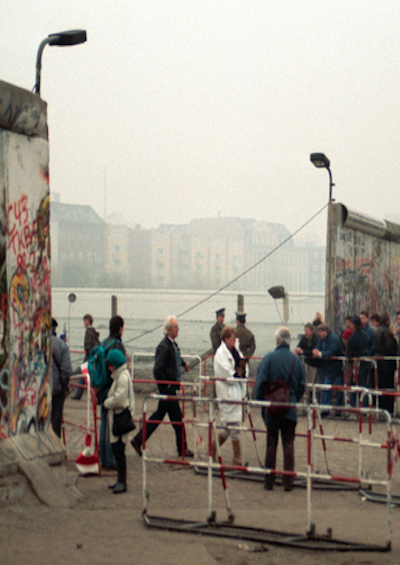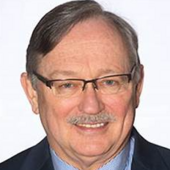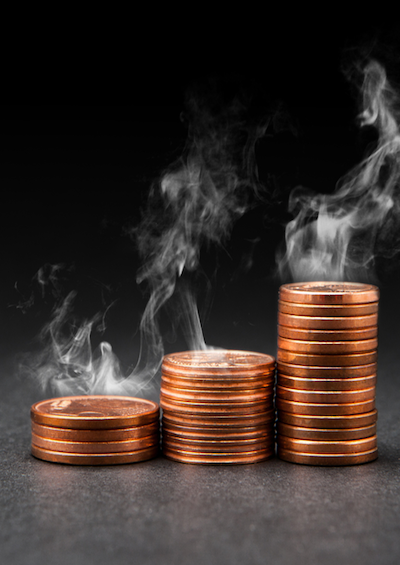The Fall of the Wall: An Accidental Revolution?
An eyewitness report by an American diplomat.
November 8, 2014

This is a story about courage and freedom – in the form of an eyewitness report by an American diplomat serving in East Berlin, then the capital of the German Democratic Republic (GDR=East Germany) in 1989.
That was the year, now a quarter century ago, when the fall of the Berlin Wall made way for German unity, Germany’s NATO membership and the future of Europe.
Remarkably, East German leader Erich Honecker had predicted in January 1989 that the Berlin Wall would last for 100 years – unless, he said, the underlying reasons for its existence were removed.
By that, he meant from his ideological perch, that sinister capitalist forces would cease having designs on invading the territory of his noble people. He surely did not foresee what was to come.
Nobody had an idea
Honecker was far from the only one lacking the requisite imagination. The 1989/90 revolutions in Europe seem like such a historical given now that it is hard to imagine the truth: At that point, basically no one could imagine that developments in the socialist world would soon accelerate so dramatically.
Western politicians may have given speeches about the yearning for freedom in central and Eastern Europe. But they also had no real idea of how strong that yearning, on the part of peoples long conditioned to suppress it, would prove to be.
In a matter of months, though, the citizens of the GDR of all places would take it upon themselves to remove the reasons allegedly underpinning the existence of the wall.
At the time, I served as the Deputy Chief of Mission of the U.S. Embassy in East Germany. On November 9, 1989, in the early evening I attended a reception along with the mayors of East and West Berlin, Allied military commanders, East German spy-swapping lawyer Wolfgang Vogel, and many political leaders of East and West Berlin.
No revolution in the air
Not one of us had any inkling the Berlin Wall was about to fall on that November 9 and turn the world upside down. No one at the reception had a whiff of anticipation of the excitement that would imminently engulf Berlin, Germany and the world.
As the event was coming to a close, Wolfgang Vogel, the East German lawyer/negotiator, asked me for a ride to central Berlin. I was happy to oblige as I hoped that, in exchange, he would give me his assessment of the recent changes in the GDR travel law.
After all, Vogel, as Honecker’s lawyer, would surely know all about the GDR leadership’s next steps. Or so I thought.
Vogel told me that government attorneys had proposed that the Politburo lift most travel restrictions in GDR law – and that the Communist leadership was meeting to adopt the new rules.
The new changes, although they had not yet been announced, might satisfy East Germans’ demand for more freedom of travel, Vogel stated.
I dropped him off at his own car and then headed toward the U.S. Embassy in the East. As a diplomat, I was happy about my scoop on the Politburo deliberations which I had gotten from Vogel. It would make for a good report back to my superiors at the State Department in Washington.
Back at the American Embassy
I arrived back at the embassy around 7:30 p.m. I went directly to our political section where I found a greatly excited team of diplomats, including Jon Greenwald, the political counselor.
They were stunned, having just heard what Guenther Schabowski, the East German government spokesman, had announced about the travel law reform on television. Schabowski had announced to the world that the Politburo had agreed to lift travel restrictions.
The new rule was that East Germans interested in visiting the West could forthwith get visitor visas on a quick-turnaround basis from their local “People’s Police” station. The East German government would also open a new processing center to handle emigration cases.
An Italian journalist asked when the new rules would go into effect. Schabowski fumbled with his papers, looking for a precise answer – and then mumbled “immediately.”
My presumed scoop was thus overtaken by events. And our embassy’s political counselor made the correct call. He concluded that the East German announcement by Schabowski would set the world on fire.
Said Jon Greenwald, “This announcement is unbelievable as were all the changes from the last couple of days.” After all, although Schabowski’s oral statement was beyond anything we could have imagined. It was open to widely varying interpretation.
How Brokaw helped break the Berlin Wall
At the time, in what turned out to be most fortuitous timing for him and his network, Tom Brokaw, the anchorman of NBC News, was in Berlin and had attended the press briefing. Brokaw had asked Schabowski if his announcement meant that the Berlin Wall was now open. Schabowski reportedly said yes.
Tom Brokaw then left the press conference and, on his satellite phone, called Garrick Utley at NBC in New York. Utley gave Brokaw, as an eyewitness to the announcement, NBC approval to broadcast the story.
Then, for the next hour and a half, Brokaw stood before the Brandenburg Gate on U.S. television and announced the Berlin Wall was open.
None of us diplomats had the official announcement – or knew how the East Germans planned to implement the new rules. We worried about confrontation at the Wall.
After all, the border guards back then had standing shooting orders to defend the border at their checkpoints.
While television was broadcasting live that the Wall was now open, Jon Greenwald sent Imre Lipping, a political officer at the embassy, to our press office to find the text of the Schabowski announcement.
Shoot – or pass?
He, in turn, sent Heather Troutman, another political officer, out to Checkpoint Charlie to see what the guards would do when the people demanded to travel through the Wall. Would the border guards carry out their shoot-to-kill order to defend the Wall?
In fact, the first East Germans trying to go West after hearing Schabowski’s announcement were sent home by guards at Checkpoint Charlie who told them to first get visas.
We sighed in relief. The GDR guards seemed to keep things under control, while new, orderly procedures were being worked out.
We also knew that, in Washington, White House Press Spokesman Marlin Fitzwater would be all over President George H.W. Bush to make a statement.
For that to happen, we had to send a report on the events to Washington as quickly as possible, but we were still lacking crucial information.
Still dazed by Schabowski’s announcement, we eagerly waited to see it rebroadcast again the next hour. At 8 p.m., West Germany’s then-leading news program Tagesschau led with the story. Jon and I watched the second broadcast of Schabowski’s statement.
By then, Imre Lipping had also managed to gather the official statement and returned to our embassy with the text to inform Washington.
Next, Heather wrote an on-the-ground report on the attitude of the guards at Checkpoint Charlie. Jon cabled the text of Schabowski’s announcement: East Germans had the freedom to travel and emigrate.
A wave or a trickle?
As that cable arrived in the White House and State Department in Washington, I called the White House Situation Room and State Department Operations Center to speak to the watch officers to make sure they had the embassy’s report. I could alert them to the latest developments, too.
I then called Harry Gilmore, the American Minister in West Berlin. We shared our quick assessment of the Politburo announcement. Harry and I thought the East Germans would wait to get their visas before crossing into West Berlin.
I told Harry Gilmore: “Harry, it looks like you are going to have a lot of visitors soon, but we are not sure what the flood of visitors will look like.”
Little did we know how quickly the East Germans would test the will of the border police to let them leave and to return.
I thought that, at best, if the floodgates were indeed opened, they would disgorge people the next day – but only after the government had started issuing visas.
In those short few minutes after the initial announcement by the East German leadership, we still believed there would be an orderly process.
Calm before the revolution
As the Wall held in those first minutes, no one expected the coming dramatic upheaval that lay ahead on that November night.
After all, these were Germans – and they were known for following the rules. Schabowski had set the visa rules and East Germans would cross into West Berlin the next day. That seemed a reasonable assumption.
East Germans, however, saw the West German television coverage, too. And they decided that it meant travel to the West was possible immediately.
They took their government at its word and stormed the checkpoints. This massive movement of people, fed on by live TV, was spinning out of control – and a revolution was made by accident!
Takeaways
East German leader Erich Honecker had predicted in January 1989 that the Berlin Wall would last for 100 years
The East Germans took their government at its word and stormed the checkpoints.
The East Germans people decided that travel to the West was possible immediately.
A massive movement of people, fed on by live TV, was spinning out of control. A revolution was made by accident!

